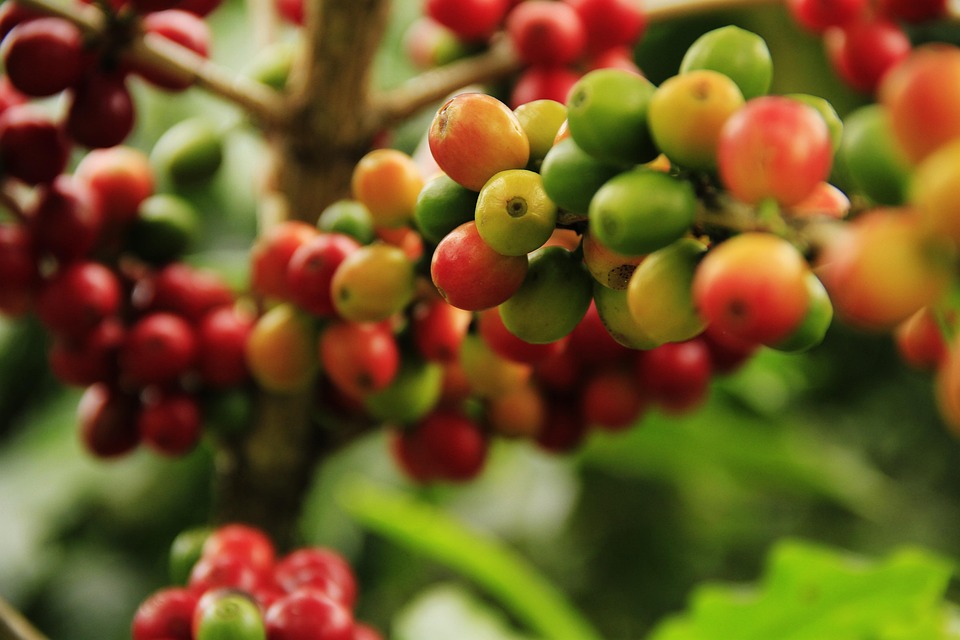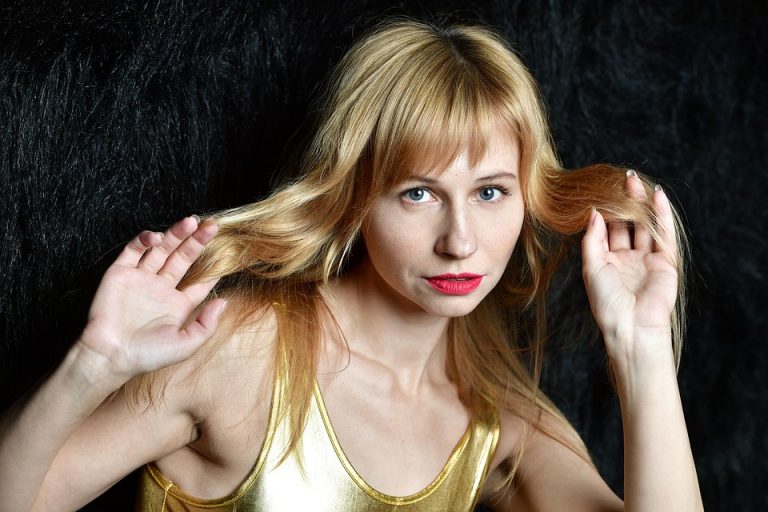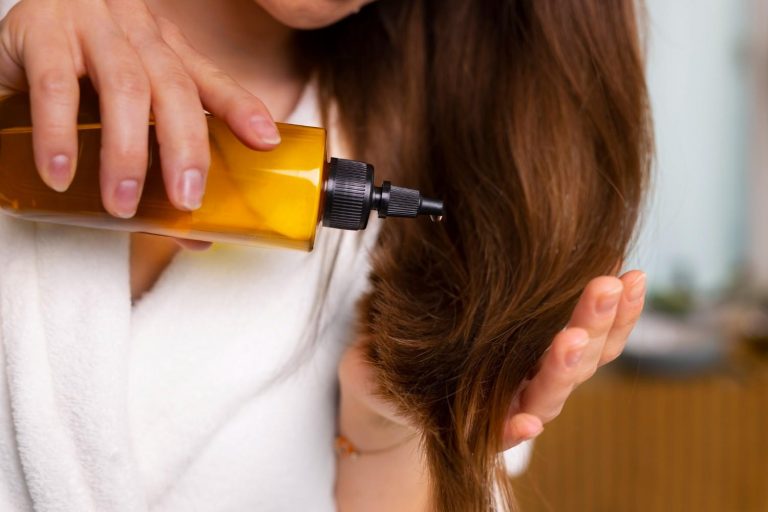Did you know that your diet plays a significant role in the health of your hair? It’s true! While we often focus on external treatments, the nutrients we consume can be just as crucial. If you’re wondering how to give your hair a little TLC, you’re in the right place. Let’s dive into ten superfoods that can help boost hair growth for women.
Contents
- 1. Spinach: The Leafy Green Powerhouse
- 2. Salmon: A Fatty Fish Delight
- 3. Sweet Potatoes: The Vitamin A Champion
- 4. Eggs: The Protein-Packed Superfood
- 5. Berries: Nature’s Antioxidant Bombs
- 6. Avocado: The Creamy Fat Source
- 7. Nuts and Seeds: Crunchy Nutrient Boosters
- 8. Greek Yogurt: The Probiotic Powerhouse
- 9. Quinoa: The Complete Protein
- 10. Lentils: The Fiber-Rich Hair Booster
- FAQs
- Conclusion
- References
1. Spinach: The Leafy Green Powerhouse
Spinach is a leafy green that deserves a place in your salad bowl or smoothie. Rich in iron, vitamins A and C, and folate, spinach helps promote healthy hair by ensuring that your scalp receives enough blood circulation.
Pros:
- Iron Content: Iron is essential for hair growth, as it helps red blood cells deliver oxygen to hair follicles.
- Vitamins A and C: These vitamins help in the production of sebum, which keeps hair moisturized.
Caveats:
- Overconsumption can lead to excess iron, which might be harmful to some individuals.
2. Salmon: A Fatty Fish Delight
Salmon isn’t just delicious; it’s also packed with omega-3 fatty acids, protein, and vitamin D. These nutrients are known to nourish the hair follicles and promote growth.
Pros:
- Omega-3 Fatty Acids: They help reduce inflammation, which can lead to hair loss.
- Protein: Hair is primarily made of protein, so adequate intake is crucial.
Caveats:
- Some people may prefer plant-based sources of omega-3, like flaxseeds, if they follow a vegetarian or vegan diet.
3. Sweet Potatoes: The Vitamin A Champion
Sweet potatoes are not just a tasty side dish; they’re also a fantastic source of beta-carotene, which the body converts into vitamin A. This vitamin is essential for promoting a healthy scalp.
Pros:
- Beta-Carotene: Helps in the production of sebum, keeping hair moisturized.
- Antioxidants: They help combat oxidative stress, which can lead to hair loss.
Caveats:
- Balance is key; eating too much vitamin A can lead to toxicity.
4. Eggs: The Protein-Packed Superfood
Eggs are often hailed as one of the best sources of protein and biotin, both of which are vital for hair health.
Pros:
- Biotin: This B vitamin is crucial for hair growth and can help reduce hair loss.
- Protein: Supports the structure of hair.
Caveats:
- Some people may have allergies or dietary restrictions that prevent them from consuming eggs.
5. Berries: Nature’s Antioxidant Bombs
Berries like strawberries, blueberries, and blackberries are packed with antioxidants and vitamin C, which can help protect hair follicles from damage.
Pros:
- Vitamin C: Aids in collagen production, which strengthens hair.
- Antioxidants: Help combat free radicals that can lead to hair loss.
Caveats:
- Fresh berries can be pricey and may not be available year-round.
6. Avocado: The Creamy Fat Source
Avocados are not just a trendy toast topping; they’re rich in healthy fats, vitamins E and C, and biotin. These nutrients work together to nourish the scalp and hair.
Pros:
- Healthy Fats: Promote a healthy scalp.
- Vitamin E: Helps protect against oxidative stress.
Caveats:
- Some people may need to watch their fat intake, especially if they’re on a calorie-restricted diet.
7. Nuts and Seeds: Crunchy Nutrient Boosters
Nuts and seeds, particularly walnuts and flaxseeds, are excellent sources of omega-3 fatty acids, zinc, and vitamin E.
Pros:
- Zinc: Essential for hair tissue growth and repair.
- Omega-3 Fatty Acids: Help keep hair hydrated and reduce dryness.
Caveats:
- They can be high in calories, so moderation is key.
8. Greek Yogurt: The Probiotic Powerhouse
Greek yogurt is not just a protein-rich snack; it’s also loaded with vitamin B5 and other essential nutrients that promote healthy hair growth.
Pros:
- Vitamin B5: Helps with blood flow to the scalp.
- Probiotics: Promote a healthy gut, which can indirectly affect hair health.
Caveats:
- Some people may be lactose intolerant and should opt for lactose-free options.
9. Quinoa: The Complete Protein
Quinoa is often touted as a superfood, and for good reason. It’s a complete protein, meaning it contains all nine essential amino acids necessary for hair growth.
Pros:
- Complete Protein: Supports hair structure.
- Rich in Nutrients: Contains iron, zinc, and B vitamins.
Caveats:
- Some individuals may find it hard to digest.
10. Lentils: The Fiber-Rich Hair Booster
Lentils are packed with protein, iron, and biotin, making them a fantastic addition to any diet focused on hair health.
Pros:
- Iron and Biotin: Both are crucial for healthy hair.
- High in Fiber: Supports overall digestive health, which can indirectly benefit hair.
Caveats:
- They can cause digestive discomfort for some individuals.
FAQs
1. How quickly can I expect to see results from eating these superfoods?
Results can vary, but typically, you might start to notice improvements in hair texture or growth within a few months of consistent dietary changes. Remember, hair growth is a slow process!
2. Are there any specific recipes to incorporate these foods?
Absolutely! Smoothies with spinach, berries, and Greek yogurt, or a quinoa salad with avocado and lentils are delicious ways to get started.
3. Can I take supplements instead of eating these foods?
While supplements can be beneficial, whole foods provide a range of nutrients that work synergistically. It’s best to focus on a balanced diet first.
4. What if I have dietary restrictions?
No worries! Many of these superfoods have alternatives. For instance, if you’re vegan, you can skip eggs and opt for nuts and seeds instead.
Conclusion
Incorporating these ten superfoods into your diet can significantly enhance your hair growth and overall health. Whether you’re whipping up a smoothie, tossing a salad, or snacking on nuts, there are plenty of delicious ways to nourish your hair from the inside out.
But let’s keep it real—while these foods can certainly help, hair growth is influenced by a myriad of factors including genetics, health conditions, and stress levels. It’s always a good idea to consult with a healthcare provider if you’re facing significant hair loss or other concerns.
This article is for educational purposes only and is not a substitute for professional medical advice. Always consult a qualified healthcare provider before making changes to your health routine.
References
- Hossain, M. K., & Rahman, M. (2020). Nutritional effects on hair growth: A review. Journal of Dermatological Treatment, 31(3), 225-232. https://doi.org/10.1080/09546634.2019.1658762
- Kossard, S. (2021). Dietary influences on hair growth: A review of the literature. International Journal of Trichology, 13(2), 56-64. https://www.ncbi.nlm.nih.gov/pmc/articles/PMC8101925/
- Mayo Clinic Staff. (2022). Hair loss: Diagnosis and treatment. Mayo Clinic. https://www.mayoclinic.org/diseases-conditions/hair-loss/symptoms-causes/syc-20351796
Get Your FREE Natural Health Guide!
Subscribe now and receive our exclusive ebook packed with natural health tips, practical wellness advice, and easy lifestyle changes, delivered straight to your inbox.




